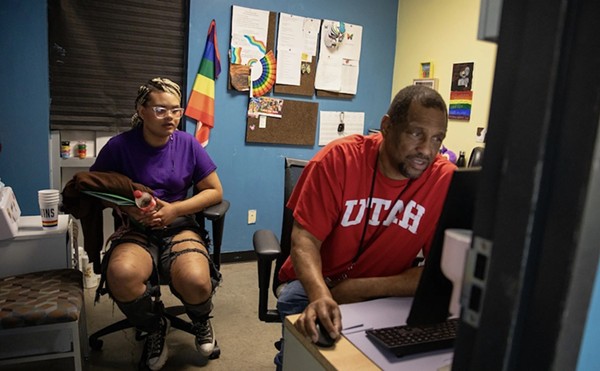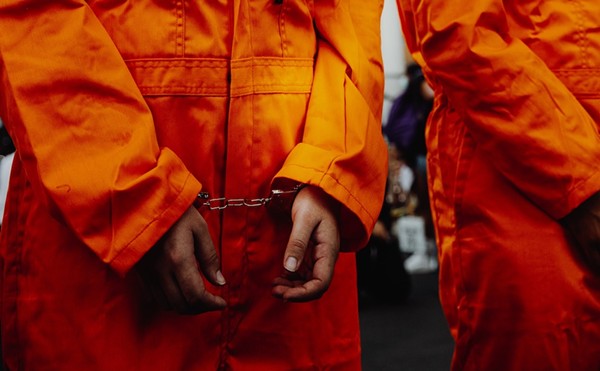SB 298 would allow police in urban areas to set up sobriety checkpoints on roads that have been identified as having DUI problems. It doesn't allow for a state check point free-for-all, as the checkpoints would only be allowed in counties with at least 250,000 residents or a city with at least 500,000. Such checkpoints have not been used since 1994 when the Texas Court of Criminal Appeals ruled such roadblocks to be unconstitutional.
Then there's SB 261, which would expand the situations in which law enforcement can require drivers to submit a breath or blood test. Drivers in accidents that cause death or serious injury are currently required to submit blood tests, but SB 261 would expand that to include accidents involving any injury that results in medical care, a DWI suspect with a child in the vehicle, or a motorist with a prior felony DWI conviction or two or more DWI convictions.
But Bexar County has already engaged in mandatory blood draws for drivers pulled over on suspicion of DWI that refuse breath tests. How was it legal? By having warrants issued for the blood tests. Bexar County First Assistant District Attorney Cliff Herberg says his understanding is that the sobriety checkpoint bill is unlikely to pass the House, but that Texans pulled over on suspicion of DWI should prepare to submit blood tests.
“Checkpoints have always been very controversial in Texas, and I would be surprised if it passed,” said Herberg, noting that a friend who's very knowledgeable about the legislature laughed at the idea of SB 298 passing the House.
The Texas ACLU opposes SB 298, saying it's an inadequate use of police resources because such checkpoints have shown a tendency of pulling over hundreds of vehicles for only a one to two percent arrest rate.
“So we feel police resources could be better allocated elsewhere,” said Jose Medina, media coordinator for the Texas ACLU. The blood tests are another story however, where the ACLU has yet to take a position.
Bexar County District Attorney Susan Reed ordered a No Refusal Accepted edict last May that police would obtain search warrants to draw blood from anyone suspected of DWI that refused a breath test. This was repeated on New Year's Eve. A December press release indicated that 77 people had been arrested over the Memorial Day weekend, with blood samples obtained from 40. The average blood alcohol content was .16, double the legal limit of .08.
“One of the interesting stats is that people who refuse the breath test average a .17,” said Herberg of the county's stats. He also noted that roughly 50 percent of cases where DWI suspects don't have to submit to a test wind up getting dismissed. He cites this as the motivation for the No Refusal Accepted program.
The Memorial Day and New Year's operations were announced ahead of time, whereas the county then brought the operation back unannounced for a week in February. Herberg says the mandatory blood draws have been legal under various circumstances, with laws varying from county to county and that the current legislative efforts are designed to streamline the process.
“Bexar County's actually not at the cutting edge, this is the way the trend is going,” said Herberg. He pointed out one case where the blood draw actually helped a person who wasn't intoxicated but was driving erratically due what turned out to be undiagnosed diabetes, a condition only discovered due to the blood test.
Herberg says Bexar County's goal is to make the mandatory blood tests full-time for DWI suspects that refuse breathe tests, but that costs and logistics are an obstacle. He cited costs for nurses, refrigeration of samples, officer training and computer programs to create the warrants and streamline the forms. He said the San Antonio Police Department has talked about absorbing the cost of the tests until they can be recovered from probationary fees.
“This is the wave of the future, across the states and across Texas,” warned Herberg.

















